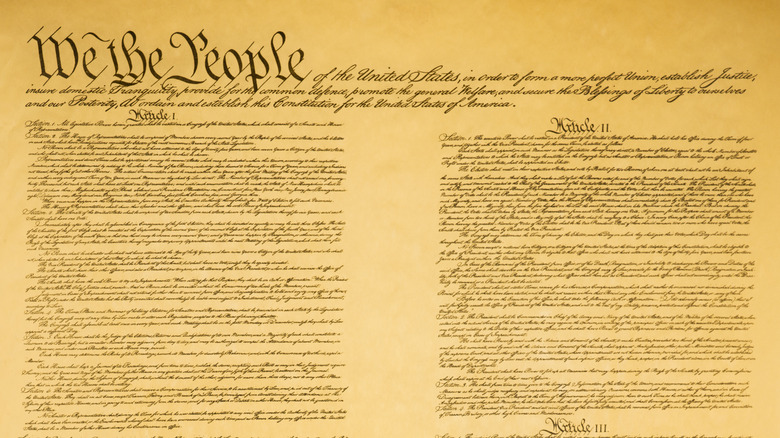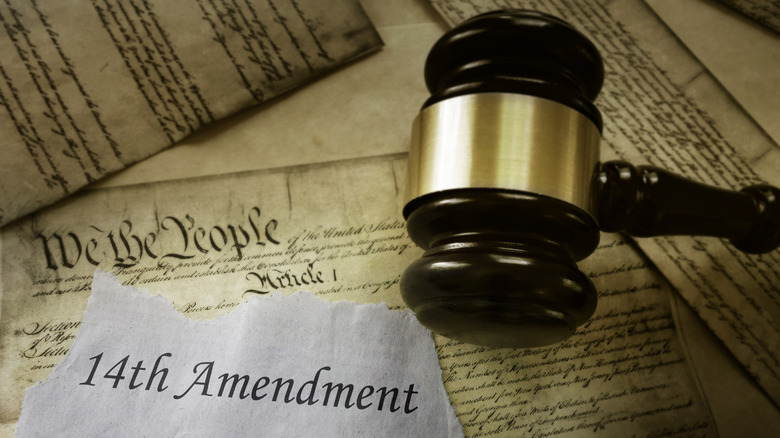What Happens If Someone In Jail Is Elected President Of The United States?
Donald Trump is the first and only former U.S. president to face criminal charges. On August 24, 2023, he appeared in Atlanta, Georgia, where the Fulton County Sheriff's Office booked him on 13 felony charges in alleged election interference, according to Reuters. It was Trump's fourth criminal indictment that year — one of the others was also related to his purported attempts to stay in power, while the remaining two were for retaining classified documents and a hush-money scheme, per Politico.
The question of what would happen if someone is reelected president while serving time behind bars is a valid one, but one without a clear-cut answer. In theory, nothing would prevent someone from serving as president from a prison cell. The U.S. Constitution has nothing to say about this kind of situation, according to The New York Times. In actual fact, things would likely end up being determined by the federal courts.
The Founding Fathers didn't foresee this possibility
The U.S. Constitution lists three requirements to run for president. A candidate must be "a natural-born citizen," "be at least 35 years old," and "have been a resident of the United States for at least 14 years," according to USA.gov. That's it. "It does not bar anyone indicted, or convicted, or even serving jail time, from running as president and winning the presidency," University of California, Los Angeles law professor Richard L. Hasen told CNN.
While the men who drafted the Constitution had a lot of foresight, they apparently didn't plan for this particular issue. "I don't think that the framers ever thought we were going to be in this situation," professor Erwin Chemerinsky, a University of California, Berkeley constitutional law expert, told The New York Times. Going from theory to practice is another matter altogether, and since this has never come up before, legal experts have a few ideas of what might come into play if it becomes a reality.
Two Amendments
There are two Constitutional Amendments that could possibly bar someone from serving as president while incarcerated. Section three of the 14th Amendment disallows anyone from serving as president or any other public office if they "have engaged in insurrection or rebellion against the same, or given aid or comfort to the enemies thereof," per the National Constitution Center. While this seems clear enough, how it would be enforced is another matter. Law experts are currently wrangling about whether the enforcement of the clause would be in the hands of the federal courts or Congress. Assistant law professor Anthony Michael Kreis of Georgia State University told CNN that as of now "we have no answer for that."
The 25th Amendment could also come into play. Sections three and four lay out how a president can be removed by the vice president if "unable to discharge the powers and duties of his office, per the National Constitution Center. The vice president does so with "a majority of either the principal officers of the executive departments or of such other body as Congress may by law provide." Being in jail might fit that bill. But as The New York Times points out, in the case of Donald Trump, it would be very unlikely that those responsible for enacting this would do it since they "would be loyalists appointed by Mr. Trump himself."


